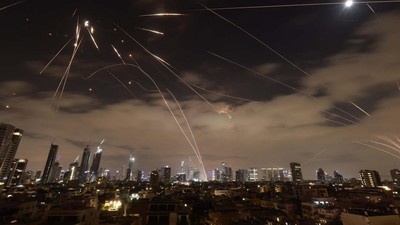Iran’s Missile Strike on Qatar: A New Twist in Middle East Tensions
Iran launched a missile strike on the U.S. Al‑Udeid Air Base in Qatar today in response to U.S. airstrikes on its nuclear facilities. Qatar intercepted all missiles, and both nations are now under international scrutiny as tensions climb.
WORLDWIDE
6/24/20252 min read


June 23, 2025 — As the skies over Doha fell silent, another chapter unfolded in the escalating Israel-Iran drama. This time, the spotlight shifted to Qatar. In retaliation for U.S. airstrikes on its nuclear facilities, Iran launched a volley of up to 19 ballistic missiles at the U.S. Al‑Udeid Air Base located near Doha. The missiles were all intercepted by Qatar’s air defence systems, leaving no casualties but causing international alarm.
Behind the scenes, Iran had informed Qatari officials in advance, giving them sufficient time to close airspace, evacuate key personnel, and prepare for action. Qatar’s swift interception and lack of physical damage allowed the nation to condemn the strike as a “gross violation” of its sovereignty while underscoring its readiness for retaliation under international law .
Meanwhile, Iran’s leadership framed the attack as a necessary but measured response to aggression. Supreme Leader Ayatollah Ali Khamenei emphasized Iran’s defensive stance, declaring that they would “never submit to aggression” and that their actions did not target Qatar but were aimed squarely at American military infrastructure.
On the global stage, the event triggered swift condemnation and concern. Egypt, Lebanon, Oman, and other Gulf Cooperation Council members aligned with Qatar, calling for de-escalation. Even the U.S. military ministry took notice, with officials confirming Iran’s coordinated warning and praising Qatar and U.S. forces for averting loss of life.
Adding political complexity, former President Trump, wary of further escalation, labelled Iran’s strike as “very weak” and lauded the advance notice, stressing that the priority should now be peace. Yet diplomats caution that without formal agreements or transparency, this might merely be a temporary lull in a much broader crisis.
All this occurs as Iran also explores closing the Strait of Hormuz in response to U.S. actions—a move that would send shockwaves through global oil markets.
Qatar’s airspace has since reopened and life is resuming mostly as normal, yet the message is clear: even without casualties, military strikes on foreign air bases are crossing a line. As Iran, Qatar, and the U.S. adapt to this new reality, the region stands at a precarious inflection point.